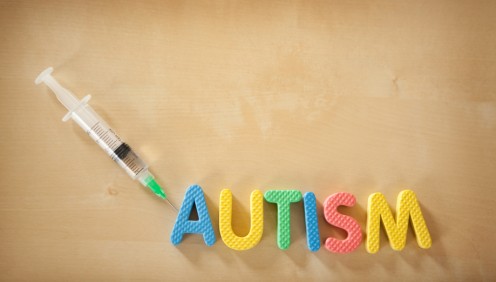Imagine if I said the following:
The proportion of parents refusing vaccines has steadily increased over the past decades. Let’s stop debating whether refusing vaccines is safe and instead engage in examination of the factors that may make vaccine refusal safer.
I’d be roundly and appropriately condemned by pediatricians, immunologists and public health officials even though vaccine refusal has grown tremendously to affect as much as 20% of children.
[pullquote align=”right” cite=”” link=”” color=”” class=”” size=””]There’s nothing subjective about the fact that homebirth with a CPM leads to preventable infant deaths. [/pullquote]
Why?
Because we understand that vaccine refusal stems from lack of knowledge about how vaccines work or the dangers of vaccine preventable illnesses, and a fraud committed by Dr. Andrew Wakefield falsely connecting vaccines to autism. It is the responsibility of medical professionals to meet this knowledge deficit with accurate information, correcting myths and misapprehensions with scientific data.
We are also coming to understand that vaccine refusal is closely tied with privilege, defiance and a faux sense of empowerment. Nothing screams privilege louder than ostentatiously refusing something that poor women around the world are desperate to have. Anti-vax parents glory in defying authority, imagining that it marks them as “educated.” Similarly vaccine refusal is viewed by anti-vax parents as an empowering form of rugged individualism, marking out their own superiority from those pathetic “sheeple” who accept medical authority because they haven’t done “their own research.”
So why are some obstetricians insisting that we need to examine the factors that may make homebirth safer when it has risen from a fringe of a fringe practice (0.87% of births) to a fringe practice (1.5% of births)? That’s the terrible mistake made by Ellen L. Tilden, PhD, CNM; Jonathan M Snowden, PhD; Aaron B Caughey, MD, PhD; Melissa J. Cheyney, PhD, CPM, LDM in their Medscape commentary Making Out-of-Hospital Birth Safer Requires Systems Change.
They write:
… [O]ut-of-hospital births have steadily increased over the past decade, up 72% from 0.87% of US births in 2004 to 1.5% in 2014. This trend shows no sign of reversing; disengaging with the debate over whether out-of-hospital birth is safe and instead engaging examination of the factors that may make out-of-hospital birth safer is of critical import. Formally including home and birth center care in US maternity care systems will improve outcomes for the growing numbers of women seeking care outside of the hospital. In parallel, increasing the availability of physiologic birth in-hospital may decrease the number of women choosing out-of-hospital birth as a means of avoiding unnecessary intervention, with the added benefit of reducing iatrogenic maternal morbidity for the predominance of low- to moderate-risk women who choose hospital birth.
Why should we take that approach to a dangerous fringe practice when we would appropriately condemn pediatricians like Dr. Bob Sears who take that approach to vaccine refusal, a dangerous practice that is widespread.
I have deep sympathy for Dr. Caughey and his obstetric colleagues who are daily forced to witness the tragic outcomes of homebirths attended by CPMs, counterfeit midwives who can’t be bothered to meet the international standards for midwifery practice. Obstetricians are desperate to save the lives of babies endangered by incompetent practitioners, and mothers who have been fed a steady diet of mistruths, half truths and outright lies by the homebirth industry.
But American homebirth is MORE dangerous than vaccine refusal; an approach that attempts to straddle the homebirth fence is unlikely to address the deadly risk it poses.
Why?
Because homebirth, just like vaccine refusal, is based on misinformation, privilege, defiance and a faux sense of empowerment. CPMs are just like vaccine charlatans, spreading lies about the inherent dangers of childbirth, and encouraging potential clients to imagine themselves as smarter than and superior to the sheeple who merely follow the medical advice of their obstetricians.
The authors write:
What one deems “safe” is inherently subjective, involving a series of judgments and a relative weighing of multiple (and sometimes conflicting) factors.
That is spectacularly wrong! There’s nothing subjective about the fact that vaccines don’t cause autism and there’s nothing subjective about the fact that homebirth with a CPM does lead to preventable neonatal deaths.
There’s no more reason to validate homebirth advocates’ fanciful view that childbirth is inherently safe than there is to validate anti-vax’ parents fanciful view that vaccines cause autism.
There’s every reason, in fact, to meet misinformation with accurate scientific evidence, and to make it clear to mothers contemplating homebirth that it poses a serious risk to their babies.
The subjective issue is NOT whether homebirth with a CPM is safe; it isn’t. The subjective issue is how an individual balances the various risks and benefits to make her own choice. Some women may find any increased risk to the baby anathema, whereas some will find the increased hospital risk of C-section deeply problematic. It is the right and prerogative of women to make their own informed medical decisions. But accurate scientific data is required for informed decision making and it’s the ethical obligation of obstetricians to provide it.
Tilden et al. start their piece with a quote:
Birth is as safe as life gets. – Harriette Hartigan, direct-entry midwife
That is abject nonsense from a charlatan, no different from Andrew Wakefield’s contention that vaccines cause autism.
Health care providers MUST respect patient choice, but we MUST NOT pander to charlatans and their acolytes by validating lies. If we do, we won’t stop preventable deaths at homebirth; we’ll encourage them.


